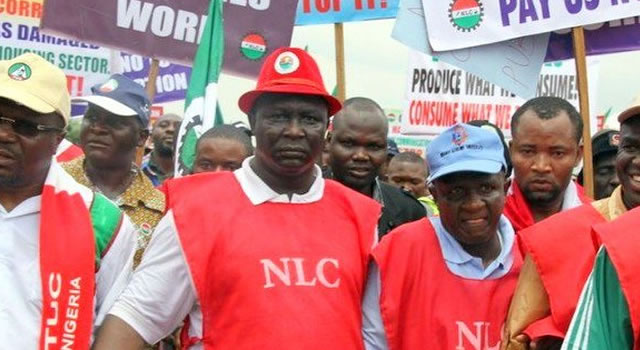Politics
NLC warns against maltreatment of Africans in UAE

The Nigeria Labour Congress (NLC) and the National Trade Union Migration Network, have warned the government and citizens of the United Arab Emirates (UAE), to desist from all forms of ill treatments on African migrant workers in their country.
In a letter jointly signed by the Chairman NLC FCT Council, Comrade Abubakar Yakubu, and Coordinator, National Trade Union Migration Network, Comrade Eustace James, and submitted to the UAE Embassy on Tuesday in Abuja, the duo advised the Emirates nation to shun all forms of human rights abuses that was tainting its image in no small measure.
According to the protesters, many reports and testimonies which include videos already in the public domain bears witness of many cases of human rights violations and fundamental social abuses against Africans in the UAE.
The letter, which was made available to newsmen read that; “This protest focuses on the protection of migrant workers’ rights and against the maltreatment and abuses of Nigerians and other African labour migrants to the United Arab Emirates.
“It is commendable to note that progress has been made and measures taken in the direction of the protection of these migrant workers. For example, the United Arab Emirates has amended their labour law legislation to allow workers to change jobs without having to obtain the consent of the original employer.
“However, unorthodox practices persist based on Human Rights Watch’s 2015 report on migrant workers’ abuses on the Saadiyat Island shipyard entitled “migrant workers’ rights on Saadiyat Island in the United Arab Emirates” or the 2018 study entitled ‘Africa labour migration to the GCC states: the case of Ghana, Kenya, Nigeria and Uganda”.
“Many reports have denounced the treatment of migrant workers who represent more than 170 different nationalities in the United Arab Emirates according to the United Nations Special Rapporteur (Joy Ngozi Ezeilo). The surveys conducted, videos on the net and testimonies show many cases of human rights violations, and fundamental social abuses.
Read also: Court rejects Nigerian govs attempt to stop implementation of NFIU Guidelines on LG funds
Going further, the letter stated that “Nigeria Labour Congress (NLC) through its Federal Capital Territory Council and the National Trade Union Network on Migration, in collaboration with Civil Society Organisations, as part of the campaign for Decent Work in commemoration of the ILO 100 years, is here to visit the UAE Embassy in Abuja to submit this “protest” letter.
“To ensure that the United Arab Emirates better guarantee rights to migrant workers in General, and Africans in particular, better living and working conditions, protecting them from abuses and exploitations of crooked entrepreneurs and employment agencies and traffickers.
“We demand and call in clear terms for: the protection of migrant workers human and workers’ rights; calling for the genuine reform of the Khafala sponsorship system; removal of exit visa; decent wages and working conditions for African migrants, especially domestic workers; access to justice where the rights of migrants have been violated; enjoyment of labour rights, including right to freedom of association (to form and join freely, trade unions of choice).
“We also call for the review of the Abu Dhabi Dialogue (ADD) to include African Governments as partner members and not as “invitees”, and also for non-state actors (trade unions and C505) inclusion that is facilitated by the ADD.”
Join the conversation
Support Ripples Nigeria, hold up solutions journalism
Balanced, fearless journalism driven by data comes at huge financial costs.
As a media platform, we hold leadership accountable and will not trade the right to press freedom and free speech for a piece of cake.
If you like what we do, and are ready to uphold solutions journalism, kindly donate to the Ripples Nigeria cause.
Your support would help to ensure that citizens and institutions continue to have free access to credible and reliable information for societal development.






















